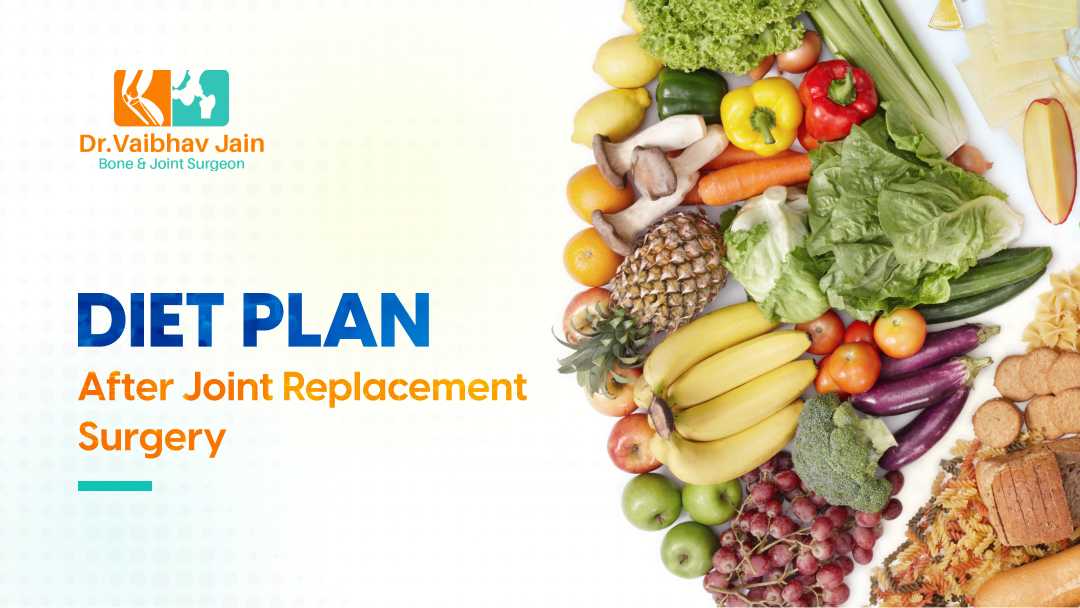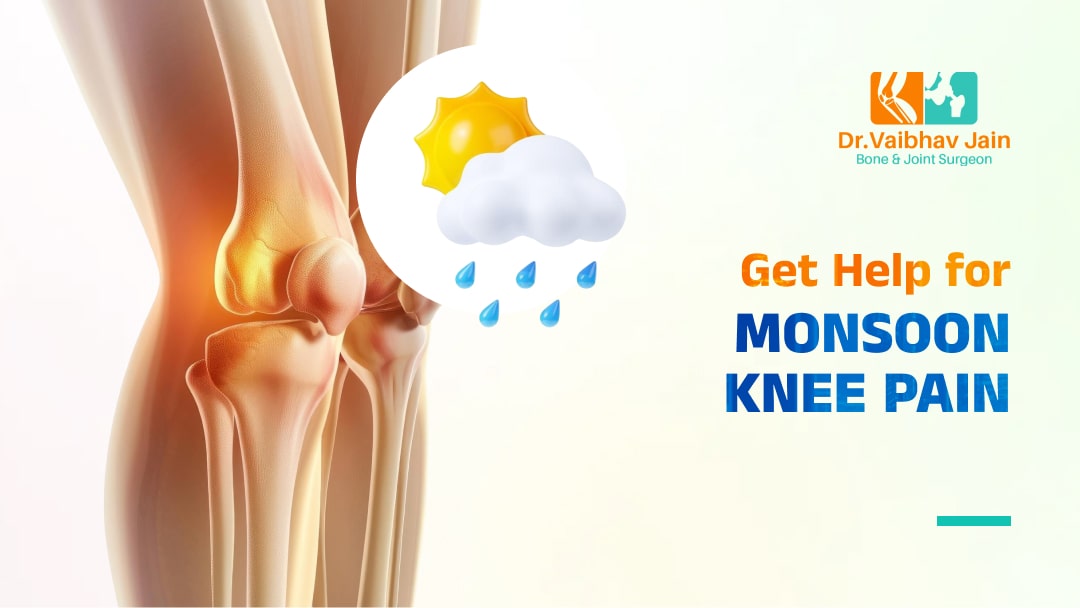Knee replacement surgery can also be very painful. The surgery consists of replacing your damaged knee cap with a prosthesis, which is usually made of plastic and metal. Recovery time may take weeks to months. Following a healthy diet plan is the best way to recover quickly after knee replacement surgery.
A diet plan for knee replacement treatment can help to reduce the risk of complications. Complications from knee replacement surgery can include infection, bleeding, and nerve damage. Eating a healthy, balanced diet can help reduce the risk of these complications and promote quicker healing. Eating plenty of fruits and vegetables, whole grains, lean proteins, and healthy fats can help to provide the nutrients needed for a successful recovery.
A diet plan for knee replacement surgery involves many different things to consider. Because each knee replacement surgery is unique, everyone’s diet has to be different. In this blog post, we will look at a meal plan after knee replacement surgery which will be helpful for you after surgery.
1. Make Sure You’re Eating Plenty Of Fresh, Whole Foods
A healthy and balanced diet after knee replacement surgery is essential for a successful recovery. Eating various fresh, whole foods can provide you with the vitamins and minerals your body needs for proper healing. Additionally, eating a balanced diet after surgery can help reduce inflammation, control pain, and improve your overall health.
When planning your diet after knee replacement surgery, it’s important to focus on nutrient-dense foods that provide your body with the building blocks it needs to repair and heal. Eating plenty of fresh fruits and vegetables is a great way to ensure you get the vitamins, minerals, and antioxidants your body needs. Additionally, adding lean proteins such as fish, poultry, and eggs to your diet can help provide your body with the building blocks it needs to repair and heal.

In addition to eating fresh, whole foods, it’s essential to stay hydrated after knee replacement surgery. Drinking plenty of water can help maintain your body’s electrolyte balance, reduce swelling, and help digestion and nutrient absorption. Other hydrating fluids, such as herbal teas, bone broth, and coconut water, are also beneficial for your recovery.
2. Make Sure You’re Avoiding Processed Foods
Eating healthy has always been essential for overall good health, but it becomes even more important after a knee replacement. To reduce the risk of complications and ensure your body has the nutrients it needs to heal properly, it’s important to avoid processed foods.
Processed foods are full of unhealthy additives like sugar and sodium, making them a poor choice if you’re looking for a diet plan after knee replacement surgery. Not only are processed foods lacking in nutritional value, but they can also harm your recovery.
When planning your diet after knee replacement surgery, the best strategy is to focus on natural, whole foods. Incorporating plenty of fresh fruit and vegetables into your meals will ensure you get the essential vitamins and minerals your body needs.
By avoiding processed foods and focusing on natural, whole foods, you’ll give your body the nutrients it needs to heal and reduce the risk of complications after knee replacement surgery. Make sure you’re taking the time to plan a healthy diet that works for you.
3. Take Vitamins And Supplements
Vitamins and minerals are essential for the body to heal. If you have recently undergone knee replacement surgery, you must take extra care to ensure your body has all the necessary vitamins, minerals and supplements to heal. Vitamins and minerals are essential for tissue repair and to keep your immune system functioning correctly. Taking vitamins and supplements as your doctor directs can help reduce inflammation and improve healing.
When it comes to diet after knee replacement surgery, your doctor may recommend a low-salt, low-fat and low-sugar diet. Eating a balanced diet of fruits, vegetables, whole grains, lean proteins, and healthy fats is essential for post-operative recovery. A healthy diet can help reduce inflammation, minimize joint pain, and help the healing process. It is important to include foods rich in calcium, vitamin D, and other minerals.
4. Be Sure To Drink Plenty Of Fluids.
After the surgery, your body is more likely to experience dehydration, which can lead to various complications. So, it is important to stay hydrated and drink plenty of fluids, including water, unsweetened tea, or mineral water.
When recovering from knee replacement surgery, it’s essential to stay hydrated. Dehydration is a major problem that can lead to various complications, including fatigue, dizziness, nausea, headache, and the risk of infection. To ensure that you’re getting the fluids your body needs to stay healthy, it’s essential to drink plenty of fluids. Drinking water, unsweetened tea, or mineral water is an excellent way to stay hydrated after surgery.
Drinking plenty of fluids, eating nutritious foods, and taking the right supplements can help you stay healthy and recover faster. So, make sure to carefully follow your doctor’s advice and be sure to drink plenty of fluids to stay hydrated and promote a successful recovery.
After knee arthroplasty, it is important to pay attention to what you eat to support your recovery.
Following knee surgery, it is crucial to follow a healthy and balanced diet to aid in the healing process. Your diet plays a significant role in your recovery after knee surgery, so make sure to choose the best food after knee replacement surgery
Foods To Include In The Diet
After knee replacement surgery, focus on incorporating the following foods into your diet:
Lean Protein Sources
Include lean meats, poultry, fish, eggs, legumes, and low-fat dairy products in your meals. These protein sources provide essential amino acids necessary for tissue repair and recovery.
Fruits And Vegetables
Fresh fruits and vegetables are rich in vitamins, minerals, antioxidants, and fiber. Aim for a variety of colorful produce to obtain a wide range of nutrients.
Whole Grains
Choose whole grains such as brown rice, quinoa, whole wheat bread, and oats. These foods are high in fiber and provide sustained energy throughout the day.
Healthy Fats
Include sources of healthy fats, such as avocados, nuts, seeds, and olive oil. These fats are important for joint health and provide essential nutrients.
Dairy Products
Low-fat dairy products like milk, yogurt, and cheese are excellent sources of calcium and protein. Opt for low-fat or non-fat options to reduce saturated fat intake.
Foods Rich In Vitamin C
Vitamin C is essential for collagen synthesis and tissue repair. Include citrus fruits, strawberries, kiwi, and bell peppers in your diet to meet your vitamin C needs.
Foods High In Iron
Iron is important for oxygen transport and wound healing. Include iron-rich foods like lean red meat, poultry, beans, and dark leafy greens in your meals.
What To Eat After Knee Surgery
A. Plant-Based Protein Sources
- Legumes (chickpeas, lentils, black beans)
- Soy-based products (tofu, tempeh)
- Nuts and seeds (almonds, chia seeds, pumpkin seeds)
B. Calcium-Rich Vegetarian Foods
- Fortified plant-based milk (almond, soy, oat)
- Plant-based yogurt
- Leafy green vegetables (kale, broccoli, bok choy)
C. Anti-Inflammatory Vegetarian Foods
- Omega-3 Fatty Acids (chia seeds, flaxseeds, walnuts)
- Colorful Fruits and Vegetables (berries, turmeric, ginger)
- Healthy Fats (avocado, olive oil, almonds)
Diet Chart For Orthopedic Patient
Breakfast:
Option 1: Oatmeal with almond milk, topped with fresh berries and a sprinkle of chia seeds.
Option 2: Whole-grain toast with avocado spread, tomato slices, and a side of Greek yogurt.
Mid-Morning Snack:
A small handful of unsalted nuts (almonds, walnuts, or cashews).
Fresh fruit, such as an apple or banana.
Lunch:
Option 1: Quinoa salad with mixed vegetables (bell peppers, cucumber, cherry tomatoes) and a light vinaigrette dressing.
Option 2: Lentil soup with whole-grain bread and a side of steamed broccoli.
Afternoon Snack:
Greek yogurt with a drizzle of honey or a handful of mixed berries.
Carrot and cucumber sticks with hummus.
Dinner:
Option 1: Baked or grilled tofu with quinoa and roasted Brussels sprouts.
Option 2: Brown rice stir-fry with assorted colorful vegetables and tofu or paneer.
Evening Snack (If Needed):
Herbal tea with a couple of whole-grain crackers or rice cakes.
A piece of dark chocolate or a small serving of dried fruits.
Fluid Intake:
Drink plenty of water throughout the day.
Herbal teas or green tea can be included for added antioxidants.
Notes:
Emphasize whole, nutrient-dense foods.
Ensure an adequate intake of calcium-rich foods for bone health.
Include sources of plant-based protein to support muscle strength and recovery.
Adjust portion sizes based on individual dietary requirements and activity levels.
This diet chart provides a general guideline for a balanced and vegetarian-friendly diet for orthopedic patients. It’s essential to consider individual preferences, dietary restrictions, and specific health conditions. Consulting with a healthcare professional or a registered dietitian for personalized advice is recommended.
5 foods to eat before and after knee replacement surgery
| Time | Food | Why It Helps |
|---|---|---|
| Before Surgery | 1. Chicken Breast | Gives your body protein to help heal. |
| 2. Spinach | Full of vitamins to support healing. | |
| 3. Sweet Potatoes | Gives energy and important nutrients. | |
| 4. Greek Yogurt | Helps with digestion and provides protein. | |
| 5. Whole Grain Bread | Gives energy and keeps you full. | |
| After Surgery | 1. Fish (like Salmon) | Contains omega-3 fats to reduce swelling. |
| 2. Broccoli | Packed with vitamins to help recovery. | |
| 3. Nuts (like Almonds) | Provides protein and healthy fats. | |
| 4. Quinoa | Full of protein and helps with healing. | |
| 5. Berries | Gives antioxidants to help your body recover. |
Eating these foods helps your body heal and get stronger after knee replacement surgery.
Conclusion
Knee replacement surgery is a significant procedure that can be very painful and take weeks to months to recover. A healthy, balanced diet is an important part of a successful recovery. Eating plenty of fruits and vegetables, whole grains, lean proteins, and healthy fats can provide the nutrients needed for recovery. It is essential to consult with your doctor for a personalized diet plan that is tailored specifically for you and your knee replacement surgery.
Suppose you are looking for an experienced and knowledgeable orthopedic surgeon to provide you with a personalized diet plan after knee replacement surgery. In that case, Dr. Vaibhav Jain is a perfect choice. He will work closely with you to develop a diet plan tailored to your needs and lifestyle and will provide advice on lifestyle changes that can help support your recovery. Contact Dr. Vaibhav Jain today to get started on your journey to a speedy and successful recovery.
Frequently Asked Questions
The ideal diet plan after knee replacement surgery should include plenty of protein, vitamins, and minerals to promote healing and tissue repair. Patients should aim to consume lean meats, fish, eggs, beans, nuts, and low-fat dairy products to meet their protein needs. It is also essential to consume foods rich in vitamins A, C, and D, which can help strengthen bones and promote tissue regeneration. Patients should also include iron-rich foods such as spinach, red meat, and lentils to promote healthy blood production.
It is recommended to avoid high-fat, high-sugar, and processed foods after knee replacement surgery as they can contribute to inflammation and slow down the healing process. Additionally, certain medications such as painkillers and antibiotics can cause digestive issues, making it essential to maintain a healthy and balanced diet.
Staying hydrated is crucial after knee replacement surgery as it promotes circulation and helps flush out toxins from the body. Patients should aim to drink at least 8-10 glasses of water daily, and more if they are sweating heavily due to exercise or the weather.
Certain foods can exacerbate inflammation and slow down the healing process after knee replacement surgery. Patients should avoid high-fat and high-sugar foods, processed foods, fried foods, and alcohol, as they can all contribute to inflammation and slow down healing.
The duration of the special diet after knee replacement surgery may vary depending on the individual’s healing process and health status. However, it is recommended to maintain a healthy and balanced diet indefinitely to promote overall health and well-being.






